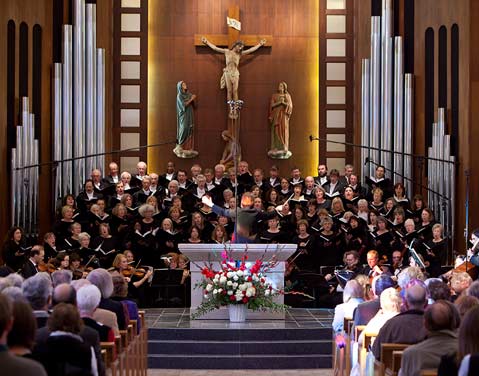McCoy Tyner Is Back
The Lobero Presents Coltrane’s Pianist

A PIANIST SUPREME: Back in early December at UCLA’s Royce Hall, a medley of musicians from different stylistic corners gathered to pay tribute to the late, great Alice Coltrane. Most famously, of course, she was John Coltrane’s widow and mother to saxist Ravi Coltrane, but she was also an ashram leader in the Vedanta faith and a fascinating musician in her own right, influential in jazz and beyond. That reach accounted for a musician guest list including TV on the Radio’s Kyp Malone, organic electronica star Flying Lotus (aka Steven Ellison—also her great-nephew), and genre-straddling guitar hero Nels Cline.
But the evening’s palpable buzz factor clearly peaked when McCoy Tyner hit the stage. Having Tyner on the program, running through two flowing solo piano pieces, upped the tribute’s ante and credibility, while reminding us of the inevitable, half-century-old two-way connection between Tyner and Coltrane, in whose classic early-’60s quartet Tyner forged one of the most signature piano styles in jazz. Muscular, modal at times, but also lyrical and balladic with the best of them, Tyner’s playing is still a thing of wonder, energy, and beauty.
When Tyner pays a return visit to the Lobero on Tuesday, March 8, capping off the current Jazz at the Lobero series, it will be a show any self-respecting jazz fan will want to catch, for music’s sake and legacy’s sake. Tyner’s Lobero appearance in 2005 was an odd one, and an off one (we’ve all got ’em). He seemed out of focus and complained about the Steinway in frustration. Since then, Tyner, now 72 and on his game, has charged ahead, enjoying status as one of the living links to a Golden Age of jazz. He has launched his own label, releasing albums with his quartet, with assorted guitarists (including John Scofield and Bill Frisell, recent brainy barnstormers at the Lobero), and a solo set, within the past five years.
At the Lobero, Tyner’s quartet headlines a night that will also include, from the emerging jazz artist world, the Brubeck Institute Jazz Quintet (coincidentally, Brubeck is another of jazz’s muscular/lyrical pianists of note). While the jazz-hungry among us wish the series could be twice as big, Jazz at the Lobero remains one of Santa Barbara’s cultural treasures, nestled in what is clearly a great room for jazz in these United States. DownBeat magazine anointed it in its recent “Best Places to See Jazz” feature (okay, I wrote that—but it’s true!). No doubt, the highlight of this season will have been the remarkable double-header guitar summit, with Scofield’s and Frisell’s trios—alone and, for one tune, together. But Tuesday’s Tyner evening pays respects to a different milieu, the naturally diminishing ranks of consummate veterans still in our mortal midst.
TO-DOINGS: Another calendar-marking jazz show this week lands at SOhO Restaurant & Music Club on Sunday, March 6, when trumpeter—and sometime singer—Rebecca Coupe Franks brings her band to town, touring in support of her new album, Check the Box (RCF Records). The Bay Area-bred and N.Y.C.-based musician has worked with many established leaders in jazz, including her mentor Joe Henderson (whose all-female band, at one point, included Franks, pianist Renée Rosnes, bassist Marlene Rosenberg, and drummer Sylvia Cuenca, all of whom have helped to at least slightly disrupt the jazz male dominance). With Check the Box, dedicated to her late father, Franks stretches out into vocal tunes, some with irreverent social commentary and Mose Allison-like irony attached. Plus, we hear the fine-fettled blowing we’ve come to expect, as we will hear at her SOhO show.
VOICES CARRY: Santa Barbara’s considerable strength as a choral music town continues, with last weekend’s Santa Barbara Choral Society’s taking on Bach’s B Minor Mass as a lofty f’r-instance. The choral beat goes on this Friday, March 4, in the ever choral-music-friendly St. Anthony Seminary Chapel , when UCSB’s laurelled and well-traveled Chamber Choir presents the program Water Music, with music from the U.S., Canada, and Finland—a hot spot for interesting choral music, it so happens.



